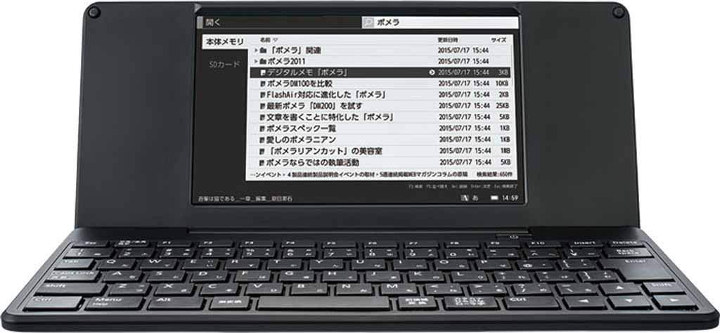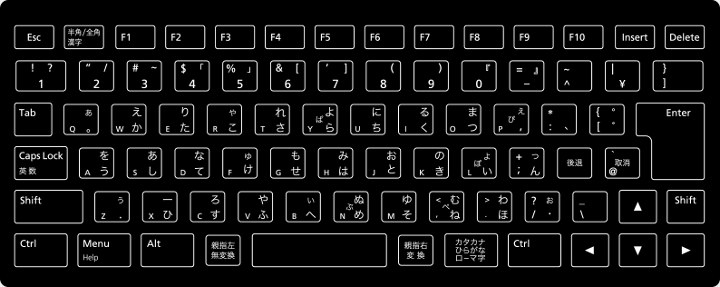Ultra mobile portable computers (UMPC) are somewhat making a come back with products such as GPD Pocket 2 or DragonBox Pyra open source handheld computer.
While being fairly powerful, neither devices are particularly inexpensive, and if you are looking for something cheaper, and admittedly much slower, I’ve been informed that Rockchip RK3128 based KINGJIM Pomera DM200 mini computer can be an option since it has been “hacked” to run Debian.
 By default, the device runs a Linux OS with user interface in Japanese only, and is sold as a digital memo. Some of the specifications include:
By default, the device runs a Linux OS with user interface in Japanese only, and is sold as a digital memo. Some of the specifications include:
- SoC – Rockchip RK3128 quad core Cortex A7 processor with Mali-400MP2 GPU
- System Memory – 512MB RAM
- Storage – 4GB flash, micro SD slot up to 32GB
- Display – 7″ TFT LCD display with WSVGA (1024 x 600) resolution
- Connectivity – WiFi 802.11 b/g/n + Bluetooth 4.0 LE + EDR
- Keyboard – Japanese keyboard
- Battery – 3.7V/ 4.2A (16Wh) Lithium Ion battery
- Power Supply – 5V/1.5A via micro USB port
- Dimensions – 263 (W) x 120 (D) x 18 (H) mm
- Weight – ~ 580 grams
The thing can also sync with iPhone and Mac computer, and work with Evernote.

With those specifications, Japanese keyboard, and a $360 price tag (in the US), I’m not sure the value proposition is there, but at least it’s interesting some people managed to run Debian with XFCE 4. WiFi is enabled, and you can browse the web with Firefox using this little “portable computer” as shown in the video below..
The instructions in Japanese, but that should still be easy nough to follow are available here. I also checked the price is Japan, and it’s still around $314 in Amazon JP. People still seem happy about their purchase what whatever they do with it, and the product has been nominated “Amazon’s choice”.
Thanks to “Anonymous” for the tip.

Jean-Luc started CNX Software in 2010 as a part-time endeavor, before quitting his job as a software engineering manager, and starting to write daily news, and reviews full time later in 2011.
Support CNX Software! Donate via cryptocurrencies, become a Patron on Patreon, or purchase goods on Amazon or Aliexpress




